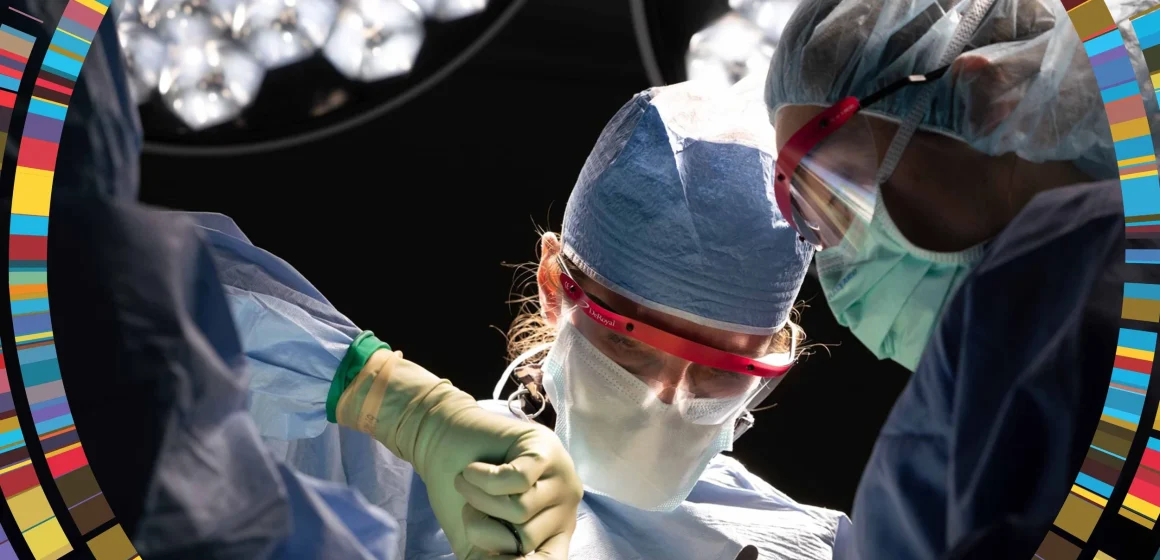Healthcare and medicine are undergoing one of the most transformative periods in modern history. Rapid advancements in technology, growing global health challenges, and rising patient expectations are reshaping how care is delivered, accessed, and experienced. From telemedicine and artificial intelligence (AI) to personalized treatments and preventive care, the medical landscape is evolving to meet the needs of a changing world.
This article explores the latest trends, innovations, and challenges shaping the future of health and medicine, while highlighting the opportunities they bring for patients, healthcare professionals, and society at large.
1. The Digital Transformation of Healthcare
Digital health is revolutionizing medicine by making care more efficient, accessible, and patient-centered.
-
Telemedicine: Once considered a niche service, telemedicine has become mainstream. Virtual consultations allow patients to access doctors from anywhere, reducing barriers related to distance, time, and mobility. This is especially valuable for rural populations and patients with chronic conditions.
-
Wearable Technology: Devices like smartwatches and health trackers monitor heart rate, sleep patterns, oxygen levels, and even detect irregularities such as atrial fibrillation. This empowers patients to take charge of their health while providing clinicians with valuable real-time data.
-
Electronic Health Records (EHRs): Digital records streamline patient information sharing across healthcare providers, improving accuracy and reducing medical errors.
The digital shift not only increases efficiency but also strengthens preventive medicine by identifying potential health risks before they escalate.
2. Personalized and Precision Medicine
Traditional “one-size-fits-all” medicine is being replaced by precision medicine, which tailors treatment to individual characteristics, genetics, and lifestyles.
-
Genomic Medicine: Advances in DNA sequencing have made it possible to predict disease risks, guide treatment choices, and even prevent certain conditions. For example, identifying BRCA gene mutations helps assess breast and ovarian cancer risks.
-
Targeted Therapies: Cancer treatment is a leading area for precision medicine. Instead of broad chemotherapy, doctors can prescribe drugs that specifically target cancer cells, minimizing side effects and improving outcomes.
-
Pharmacogenomics: Understanding how individuals respond to medications reduces trial-and-error prescribing and ensures patients receive drugs that work best for their unique genetic makeup.
As genomic testing becomes more affordable, precision medicine is expected to become a standard component of healthcare.
3. Artificial Intelligence in Medicine
Artificial intelligence is reshaping diagnostics, treatment planning, and hospital operations.
-
AI Diagnostics: Algorithms can analyze medical images such as X-rays, MRIs, and CT scans with remarkable accuracy, often detecting conditions earlier than the human eye.
-
Predictive Analytics: AI models can forecast patient outcomes, hospital readmissions, and potential complications, enabling proactive care.
-
Virtual Assistants: AI-driven chatbots are guiding patients through symptom checks, medication reminders, and post-treatment instructions.
While AI cannot replace physicians, it serves as a powerful tool that enhances decision-making, reduces administrative burden, and improves patient outcomes.

4. Preventive Healthcare and Lifestyle Medicine
Preventive medicine is gaining prominence as healthcare systems shift from treating illness to promoting wellness.
-
Chronic Disease Prevention: Conditions such as diabetes, heart disease, and obesity are often preventable through lifestyle changes. Healthcare providers are now emphasizing nutrition, exercise, and stress management as part of treatment plans.
-
Screenings and Vaccinations: Regular screenings for cancers, cardiovascular health, and other diseases improve early detection rates, while vaccination campaigns continue to protect against infectious diseases.
-
Mental Health Awareness: Preventive care also includes psychological well-being. Integrating mental health support into primary care helps reduce stigma and improves overall health outcomes.
Focusing on prevention reduces healthcare costs and enhances quality of life for patients.
5. Global Health Challenges
Despite medical progress, significant challenges remain.
-
Infectious Diseases: The COVID-19 pandemic demonstrated how quickly viruses can disrupt societies. Continued investment in research, preparedness, and equitable vaccine distribution is essential.
-
Antibiotic Resistance: Overuse of antibiotics is leading to resistant bacteria, making infections harder to treat. New drugs, alternative therapies, and stricter regulations are urgently needed.
-
Healthcare Inequality: Access to care remains uneven, especially in low-income countries where infrastructure, resources, and trained professionals are limited.
Addressing these challenges requires global cooperation, innovation, and sustainable healthcare policies.
6. The Role of Robotics and Advanced Medical Devices
Robotics and advanced devices are transforming surgery, rehabilitation, and patient care.
-
Robotic Surgery: Surgeons now use robotic systems for minimally invasive procedures, offering greater precision, smaller incisions, and faster recovery times.
-
Prosthetics and Bionics: Modern prosthetics powered by robotics and AI restore mobility and function, improving the quality of life for amputees.
-
Rehabilitation Robotics: Devices designed for physical therapy help patients recover faster from strokes, injuries, and surgeries.
These technologies demonstrate how engineering and medicine can work together to enhance patient outcomes.
7. Ethics and Data Privacy in Medicine
The integration of technology in healthcare raises important ethical questions.
-
Data Privacy: Patient records and health data are highly sensitive. Ensuring cybersecurity and compliance with privacy laws such as HIPAA is critical.
-
AI Bias: Algorithms must be trained on diverse datasets to prevent bias that could negatively impact patient care.
-
Access Inequality: Advanced treatments and technologies are often expensive, creating a gap between those who can afford them and those who cannot.
Ethical frameworks must evolve alongside innovation to ensure fairness, safety, and trust in modern healthcare.
8. The Future Outlook for Healthcare
The future of health and medicine will likely be defined by integration: combining technology, science, and human-centered care.
-
Connected Health Ecosystems: Seamless communication between patients, providers, insurers, and technology platforms will improve efficiency.
-
Home-Based Healthcare: Remote monitoring and home testing kits will make healthcare more convenient and accessible.
-
Global Collaboration: Sharing research, data, and best practices across borders will strengthen responses to global health crises.
By 2030, healthcare may look very different: more digital, personalized, and preventive—yet still grounded in the human connection between doctor and patient.

Conclusion
The field of health and medicine is at a crossroads, with extraordinary innovations promising to reshape the way we understand, prevent, and treat disease. From AI-powered diagnostics and precision medicine to preventive care and robotics, the opportunities are immense. Yet challenges such as antibiotic resistance, health inequality, and ethical concerns remain pressing.
Ultimately, the future of medicine will depend on finding a balance between technological progress and human-centered care. By embracing innovation while addressing global health challenges, society can build a healthcare system that is not only more advanced but also more equitable, compassionate, and sustainable.


Leave a Reply